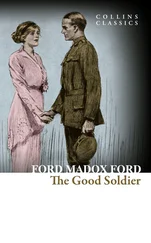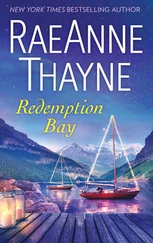“Do you need that?” she said earnestly. She was holding onto the doorjamb, staring at the gun as if it were an odd color. She had taken something. But there was no use hassling it.
“You never can tell.” He sat back on his knees and dropped the cylinder.
“Are you going to kill somebody?” she said.
He looked at her. He had just an afterimage of Deats’ $200 alligator shoes standing in the filthy water. He was ready to shoot Deats now. There wasn’t any more doubt. “Did anybody come?” he said.
“No,” Rae said. She shook her head. Her face was pale in the aqueous light. He got off his knees and brought the gun to the living room where the light was truer.
“Did you like the tour?” he said. He sat on the davenport, tore a strip off his handkerchief, and emptied the rounds into the rest of it.
Rae sat facing him, her bare knees under the hem of the bathrobe like the Catholic girls on the bus. She kept watching him, holding herself together. “They have men up there who slip through the bushes behind the ruins to sell you jade. They whisper at you,” she said. “I left when I saw that. It’s all fake. They have them in Santa Fe at the pueblos. Some farmer always finds something. Antigüedad. It’s just bullshit.”
“The ruins are real, though, right?” he said.
“Do you want to know where I went when I left in the night last year? Or even why?”
He used the tine of his belt buckle to force the handkerchief down the barrel of the Smith & Wesson, then squeezed the nub end back through the breech. “I don’t much care,” he said. She seemed argumentative, and he understood it. He just didn’t want to be that way now. The gun gave him a sense of relief.
She ran her hand through her hair and sat back in the chair. “I thought I’d try to find a place I liked, since I never had before. But I couldn’t. Isn’t that sad? It all seemed so bad. So I went to the dog races. I thought I might see where I went wrong. Just for luck.” He picked up each cartridge separately and wiped it with the clean part of the handkerchief. They were still oily. He took the strip and pushed through each empty chamber. It needed solvent and the right brushes. Her conversation didn’t interest him. “Then I went back to Tesuque, and then daddy got sick, and then I just sat around Bay Shore. I tend just to let things happen sometimes,” she said. “I can’t survive being alienated very long.”
“You should’ve taken up with those high rollers in the plaid suits,” he said.
“How did you feel?” she said, ignoring him.
He looked up at her. “You should’ve stayed around. You could’ve found out.” He held the trigger and let the hammer ease in and out of the pin slot, listening for grit. There wasn’t any, and he wiped the cylinder and began sliding the rounds back.
“I couldn’t ever tell what the hell your life was in behalf of,” she said.
“So do you know now?” he said.
“I forgive you, though,” she said. He looked at her. “For being a fuck and for making me have to run out of there.”
“I didn’t want to have to ask you for anything else,” he said. He put the last round in the chamber and closed the cylinder slowly with his thumb and his middle finger until the spring locked conclusively and the cylinder wound up to train on the pin. “I didn’t want to get lost. Do you know what I mean?”
She shook her head. “That’s not being in love.”
“It’s close though,” he said. He took the gun and put it between the cushions of the davenport, not too deep to get at easily. He pulled it out and pushed it in. Deats would be in the bungalow again, and he wanted it set up right. The Italian girl’s face rotated up in his mind, the thing about not having a clear frame of reference. He wanted a clear frame of reference with Rae, but it kept expanding all the time.
“Why does it just have to be close, goddamn it.” She was crying, but she was Darvoned out, and she couldn’t cry very hard. “I don’t like that,” she said. “Close isn’t good enough. There’s nothing nice in that.”
He felt all right about the gun. He walked to the window and gazed over the terraced bungalows and TV antennas toward Monte Albán, south of which the sun was an orange helix subsiding into the mountains. “No, there’s not,” he said.
“It’s just all a loss to you, isn’t it?” she said. “And you have to prevent that at all costs. You have to keep yourself protected all the time.”
“I think that’s wrong,” he said. He liked the dun texture of the mountains once the sun was gone, and the light was all residue.
“And that’s why you came down here, isn’t it? Because it’s as mean as you are, and you can test yourself.” She wiped at her eyes with her hand and glared at him. It was just leftover anger.
“I came because you asked me to,” he said. “I thought there might not be another chance.” He walked across the room.
“There wouldn’t be,” she said.
“Then I guess I was right,” he said as he opened the door and walked toward the car to get the lavaliere. It was as good a time as there would ever be.

After dark he lay on the bedspread, dressed, waiting for Bernhardt’s car, waiting for the headlights to crawl the windows. He could hear insects in the wall behind his head. His stomach was quiet and emptied, and he felt articulated in the dark. He thought about a girl he’d fucked when Rae had left, a nursing-college girl from Ann Arbor, slumming in the ski bars at Shanty Creek and Mount Mancelona, east of Charlevoix. She was nineteen and had braided hair and long white arms, and seemed at ease being alone. When she had her clothes off, on the bed inside the trailer, looking cheerful as if everything was familiar, she said suddenly, “My father died last month, see, and I felt like no one had ever made an effort to know him, not even my mom.” She smiled as if this was what she wanted to talk about more than anything. “And I was really tired, see, of hearing about movie stars and football players, all kinds of other people who had died.” She stopped a moment and thought while she unpinned her hair. “A lot of great human beings die and never get any attention, and it makes me angry. Do you know what I mean? They just disappear.” She let her hair fall down and shook it and put the pins one at a time on the nightstand.
“I guess so,” Quinn said, staring at his boots on the cold floor. Her life was complicated with events that obligated her, that were limitlessly signifying and engrossing, but that didn’t make any difference to him. He tried to think of his old man and couldn’t, tried to think if anybody had paid attention to his old man and couldn’t remember. And it suddenly made him feel trapped, as if empty space was closing down around him, and made him sick with longing, a way he thought he wouldn’t feel once Rae was out of it, but that he couldn’t keep back now, a feeling of detachment and impairment, something he didn’t want ever to happen and thought he had figured how to prevent, but had failed.
“I bet you were in Nam,” the girl said and smiled at him happily and took his hand and held it to her cheek.
“What makes you think so?” he said.
“You got that tattoo,” she said. “You don’t look like a biker.” She leaned to turn off the light. “But that’s cool. You don’t care about my father. We couldn’t be here if you did, right? You’d have too much sympathy for me.”

Rae sat at the foot of the bed. He could smell her perfume in the dark air, could feel her nervousness. “I can’t be ironic with you, Harry,” she said quietly. “I sat out there and wanted to be but I couldn’t. I don’t protect myself well enough, do I? I just get mad.”
Читать дальше








![Theresa Cheung - The Dream Dictionary from A to Z [Revised edition] - The Ultimate A–Z to Interpret the Secrets of Your Dreams](/books/692092/theresa-cheung-the-dream-dictionary-from-a-to-z-r-thumb.webp)




